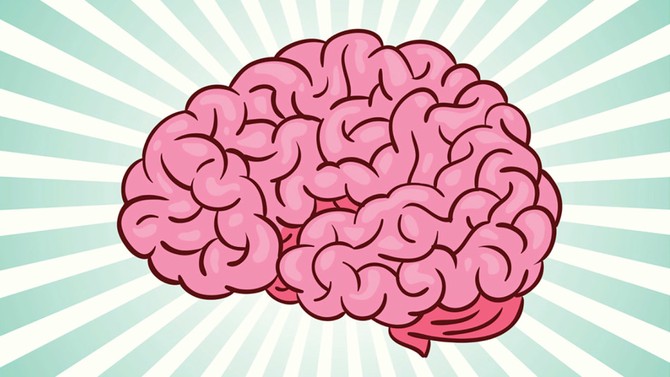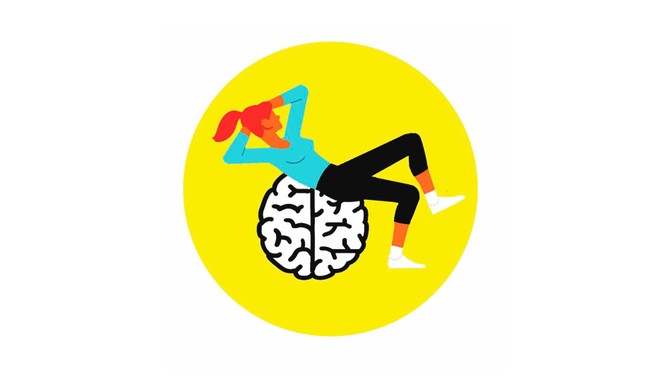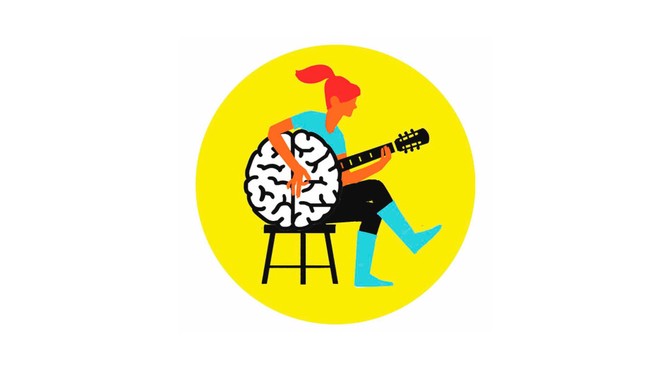3 Steps to Take Now to Prevent Dementia
The steps you can take to guard your brain against Alzheimer's—starting now.
By Jessica Migala

Illustration: bulentgultek/iStock
If you need proof that there are reasons to feel optimistic about Alzheimer's, consider Richard Isaacson's job title. Isaacson, MD, is director of the Alzheimer's Prevention Clinic at Weill Cornell Medicine and New York-Presbyterian: Simply seeing Alzheimer's and prevention next to each other is a sign of significant progress. Fifteen years ago, Isaacson points out, research efforts were focused on finding a cure. While that mission continues, science has since revealed game-changing clues as to how we might be able to protect ourselves. The biggie is the discovery that Alzheimer's can begin in the brain up to three decades before the first signs of cognitive problems. That slow build means you have time to reduce your risk of developing the disease—or, at the very least, delay it—even if you have a genetic predisposition. “We believe if people started taking preventive lifestyle measures, we could potentially decrease the incidence of Alzheimer's by about 30 percent,” says Bruce Miller, MD, director of the UCSF Memory and Aging Center. Here's how to be proactive:

Illustration: Chris Gash
1. Exercise for Your Mind
Cerebral cardio: "If you want to reduce amyloid plaques in your brain, work out on a regular basis," says Isaacson. Aerobic exercise is associated with increased gray matter volume in the brain's cortex, where memory networks are housed, says J. Carson Smith, PhD, associate professor of kinesiology at the University of Maryland School of Public Health. Physical activity can also help protect the hippocampus, another part of the brain essential to memory, from disease-related shrinkage. (This effect was found to be greater in people with the genetic risk factor for Alzheimer's.) It stimulates the birth and growth of nerve cells in the area, increases vessel formation so blood can nourish these cells, and boosts levels of brain growth factors. According to Smith's research, you'll likely get the biggest benefit if you constantly push yourself to go faster.
Mental toning: High-intensity strength training two or three days per week for six months improved brain function in people with mild cognitive impairment, according to 2016 Australian research—and the results likely apply to healthy younger adults, too, say study authors. One theory is that the same hormonal responses that help you build muscle may also help your brain grow new cells.
Mind-expanding yoga: An effective stress buster, yoga may help the brain in several ways, explains Helen Lavretsky, MD, professor in residence in the psychiatry department at UCLA. Stress hormones like cortisol are associated with decreased hippocampus volume, impairing memory; stress-induced inflammation is linked to neuronal damage. In a pilot study by Lavretsky, people older than 55 who participated in a weekly hour-long yoga session (plus 12 minutes of daily meditation) for 12 weeks reduced their stress levels and saw an improvement in verbal memory comparable to those who did only memory training. The effect would likely be seen in younger adults also, she says.

Illustration: Chris Gash
2. Make Smart Food Choices
Research has made it clear that your cranium craves plants. That's one principle behind the MIND (Mediterranean-DASH Intervention for Neurodegenerative Delay) diet, a strategic combination of two brain-beneficial eating plans: the Mediterranean-style diet and the DASH (Dietary Approaches to Stop Hypertension) diet. Eating the Mediterranean way has been linked to preserving brain volume, while sticking to the DASH diet has been found to improve blood flow to the brain. "We took these two well-rounded, heart disease–preventive diets and modified them to reflect what we've learned through 20-plus years of research about how nutrition affects the brain," says Martha Clare Morris, ScD, one of the researchers who developed the MIND diet. It emphasizes vegetables and nuts; limits animal products, saturated fat, and sugar; and recommends foods that have been shown in research to buoy brain health. In a 2015 study published in the journal Alzheimer's & Dementia, people who were most faithful to the MIND diet enjoyed slower cognitive decline—the equivalent of gaining seven and a half healthy brain years. In a second study, that same group was also found to have a 53 percent reduced risk of Alzheimer's compared with those who were least dedicated.
The MIND diet's ten brain-boosting foods (with minimum recommended amounts):
- Leafy green veggies (six servings per week)
- Other vegetables (one serving per day)
- Nuts (five servings per week)
- Berries (two servings per week)
- Beans (three servings per week)
- Whole grains (three servings per day)
- Fish (one serving per week)
- Poultry (two servings per week)
- Olive oil (your main cooking oil)
- Wine, preferably red (one serving per day)
Olive oil, nuts, whole grains, and leafy greens are rich in vitamin E, which is thought to protect against the buildup of toxic amyloid plaques in the brain as well as safeguard neurons from damaging free radicals. Omega-3s like DHA (in seafood) help improve brain cells' ability to communicate with one another. And it's important to get enough vitamin B12 (plentiful in poultry and fish) since a deficiency can lead to memory loss. Nowhere on the list: sweets. That's because a diet high in sugar can lead to obesity and eventually diabetes—both of which increase dementia risk. "I tell patients to cut added sugar as much as possible if they want a healthy brain," says Dean Sherzai, MD, PhD, codirector of the Brain Health and Alzheimer's Prevention program at Cedars-Sinai in Los Angeles.

Illustration: Chris Gash
3. Train Your Brain Wisely
Puzzles like Sudoku were once counted among the savviest ways to stay mentally nimble. But research on brain training has been inconsistent and inconclusive. "These games tap only a very narrow component of your brain," says Sherzai. Much more effective, he says, is to focus on activities that use a complex array of mental processes. Research indicates that one way to strengthen your cognitive abilities is to continually learn and do new things, which may help build and fortify the neural connections that can slow brain aging. Strategic ways to expand your horizons:
Start a bucket list of hobbies. Worry less about what you're good at and focus more on something you've always wanted to try. Learn to tango, write a haiku, make your own jewelry—whatever you're curious about.
Set a timer. To potentially lower your risk of dementia, aim to spend at least an hour each day on mentally stimulating activities, advises a 2010 study.
Make it a party. Social connections can help build new brain cells and neural networks, says Sherzai. Who's up for a paint-and-sip class?
Speaking of social connection, click to the next slide to learn about the innovative ways for patients and caregivers to connect to their communities.

Photo: AndrisTkachenko/iStock
4. Group Efforts
To combat the loneliness of Alzheimer's and dementia, innovative programs are bringing patients and caregivers out of the house and into the community.
Staying Connected
Memory Cafés are meet-ups that can be held in coffee shops or any accessible space. They're a way for people to talk about living with dementia—or simply shoot the breeze, says Lori La Bey, founder of the advocacy organization Alzheimer's Speaks. Search for a café near you at memorycafedirectory.com; also ask about support groups at senior centers.
Making Music
When the Giving Voice Chorus in Minneapolis performs its semiannual shows, audience members can't tell who has dementia and who's a care partner, says cofounder Mary Lenard. That's because music memory isn't affected by Alzheimer's, says Rudolph Tanzi, PhD; it may even stimulate short-term recall. Learn more about choral groups at givingvoicechorus.org. Or join a jam session like the Fifth Dementia Band in L.A.; check musicmendsminds.org.
Sparking Creativity
At New York City's Metropolitan Museum of Art, people with Alzheimer's and dementia and their care partners are invited to view and discuss works of art with a trained educator or, if they're inspired and able, participate in hands-on classes. Art can help people be in the moment, says Rebecca McGinnis, senior managing educator for accessibility at the Met. Contact nearby museums and your local Alzheimer's Association chapter to ask about similar programs.
Writing to Remember
Journaling gives patients a sense of accomplishment and also creates a record of their thoughts. Even when writing becomes challenging, they may still appreciate the spoken word. "You can connect with people, even when they're suffering from late-stage dementia, by gently moving their hand to the rhythm of a poem," says Gary Glazner, author of Dementia Arts: Celebrating Creativity in Elder Care. Inquire about writing programs at local senior centers.
— Andrea Atkins
Want more stories like this delivered to your inbox? Sign up for the Oprah.com Healthy Body Newsletter!
From the June 2017 issue of O, The Oprah Magazine
As a reminder, always consult your doctor for medical advice and treatment before starting any program.

